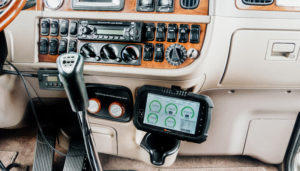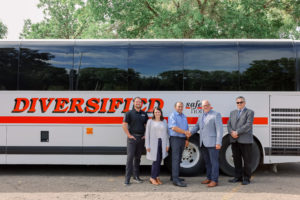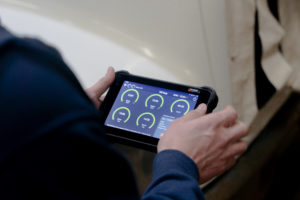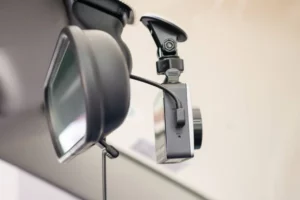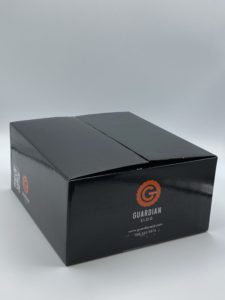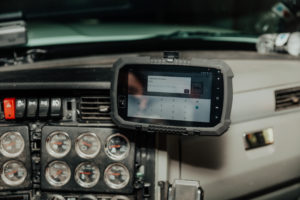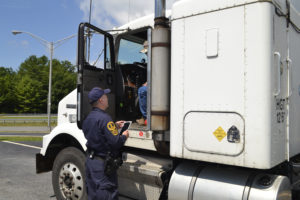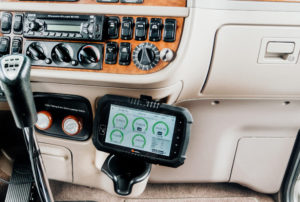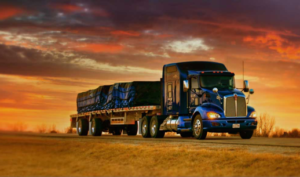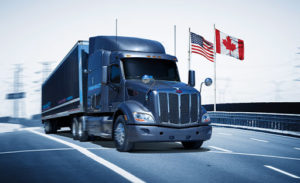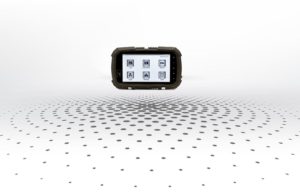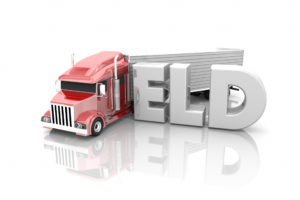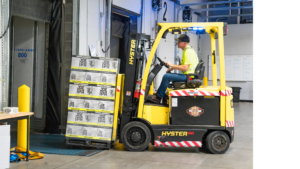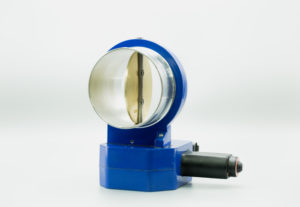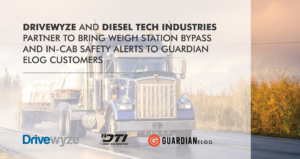
Drivewyze And Diesel Tech Industries Partner To Bring Weigh Station Bypass And In-Cab Safety Alerts To Guardian ELOG Customers
PLANO, Texas, June 20, 2024 – Drivewyze, the North American leader in connected truck services and the largest public-private weigh station bypass network operator, recently announced it has partnered with Diesel Tech Industries to provide its Guardian ELOG customers with integrated access to Drivewyze PreClear weigh station bypass and Drivewyze Safety+ services. Diesel Tech Industries offers several key fleet management technologies for trucking companies and owner operators that operate in Canada and in the U.S. “Diesel Tech Industries continues to grow and expand its suite of fleet management products for its customers,” said Frances Kilgour, VP of Business Development and Channel Management for Drivewyze. “We’re excited to partner with Diesel Tech Industries and provide its Guardian ELOG customers integrated access to our weigh station bypass and in-cab safety notifications services.” Since no transponders are required, activation of Drivewyze PreClear on the Guardian ELOG platform can be done in minutes. Drivewyze transmits safety scores, registration, and tax compliance information to the weigh station, which then calculates the information against the bypass criteria established by its state or province. If the carrier and vehicle pass the criteria, at one mile out, the driver receives permission to bypass the site. The better the fleet’s safety score, the more bypasses typically granted. Through Drivewyze PreClear, Guardian ELOG customers have the ability to receive bypass opportunities at more than 900 locations in 47 states and provinces. In addition to Drivewyze PreClear, Guardian ELOG customers can access Drivewyze Safety+, which provides drivers with real-time weather alerts, as well as in-cab safety alerts for upcoming dangerous curves, low bridges, and high speeding citation areas, and more. Drivewyze’s back-office tools also allow fleets to create their own customized driver alerts, plus our safety analytics allow fleets to monitor driver behavior and help in drivercoaching. According to Rebecca Goldsack, Diesel Tech Industries COO, adding integrated access to Drivewyze’s PreClear and Safety+ services is expected to be a welcomed new offering for its customer base. “Bypassing weigh stations is a tremendous opportunity for fleets and owner operators to save time and operating costs associated with spending time at weigh stations waiting for an inspection,” said Goldsack. “We’re pleased to partner with the leading provider of this service in Drivewyze. Drivewyze PreClear and its in-cab safety notifications service,Safety+, can help our customers operate more efficiently and safe.” “Drivewyze’s PreClear combined with the Guardian ELOG has been a game-changer for our trucking operations,” said B. Richardson Transportation, Blake Richardson, who beta-tested the Guardian ELOG and Drivewyze integrated offering. “Using the Guardian ELOG with Drivewyze, we seamlessly navigate past busy trucking scales, saving us up to 10 minutes each day, if not more, while maintaining compliance. Together, they’ve streamlined our trips, boosting efficiency and peace of mind on the road. We highly recommend Drivewyze to any fleet looking to optimize their operations.” About Drivewyze Inc.: Drivewyze Inc. is a leader in the transportation technology industry that builds innovative solutions for commercial fleets, drivers, and transportation infrastructure owners and operators. Drivewyze delivers best-in-class in-cab services to commercial fleets and drivers, like Drivewyze PreClear weigh station bypass service and Drivewyze Safety+ proactive safety alerts. Drivewyze Infrastructure Services provides solutions to state agencies, including Smart Roadside commercial vehicle enforcement (CVE) electronic screening, Central Park truck parking management, and Smart Roadways connected truck solutions. To learn more about Drivewyze, visit https://drivewyze.com/. About Diesel Tech Industries: Diesel Tech Industries, a subsidiary of Diesel Tech Truck Repair (Est.1999), was founded in 2005 in Edmonton, Alberta and has taken on multiple challenges that have faced the trucking industry over the years. All of our products are designed around our proprietary technology of reading engine data and performing an action, thus bringing many products to market with the help of our multidisciplinary team of 30 employees. We have worked at a fast pace to develop some of the most innovative and useful products in the transportation industry to help achieve driver safety. We take pride in our simple, practical, and functional design with our Guardian ELOG, which is an Electronic logging device that is Certified with Transport Canada as well as with the FMCSA. We were the first in Alberta, and the second in Canada to be certified by an accredited certification body. All of our products are designed with simplicity and practicality in mind for ease of use to ensure we are providing the highest level of safety for drivers on the road. To learn more about Diesel Tech Industries, visit https://GuardianELD.com

